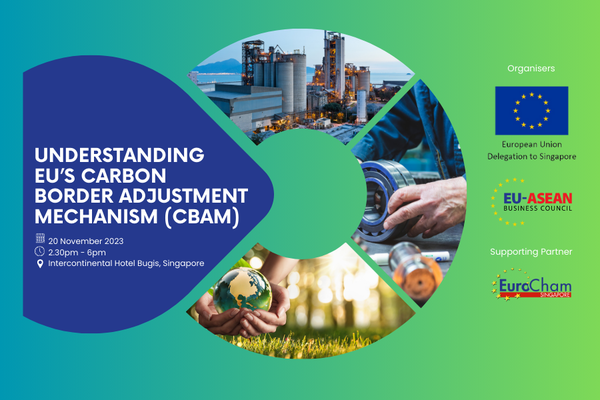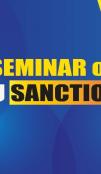Understanding the EU’s Carbon Border Adjustment Mechanism - Physical Event

We will also be joined by experts from the private sector and academia, who will be speaking on two panels - first on the implications of CBAM for Singapore and Southeast Asia, and second on the implementation of CBAM during this transitional period.
Businesses, policy makers, and academia are invited to attend this event to build their understanding around the CBAM, its impact on Singapore and the region, and for companies and their operations. This event not only hopes to provide further clarification on the CBAM’s objective, its design and gradual implementing steps, but also to provide a platform for discussion and input from stakeholders from Singapore and Southeast Asia.
The European Commission’s proposal for a CBAM was part of the July 2021 “Fit for 55” legislative package aimed at reducing the EU’s greenhouse gas (GHG) emissions by 55% from the 1990 benchmark level by 2030, as intermediary step for the EU to reach climate neutrality by 2050.
As the EU raises its own climate ambition, and as long as less stringent climate policies prevail in many non-EU countries, there is a risk of ‘carbon leakage'. Carbon leakage occurs when companies based in the EU move carbon-intensive production abroad to countries where less stringent climate policies are in place than in the EU, or when EU products get replaced by more carbon-intensive imports.
The EU’s CBAM is the EU landmark tool to put a fair price on the carbon emitted during the production of carbon intensive goods that are entering the EU, and to encourage cleaner industrial production in non-EU countries. The gradual introduction of the CBAM is aligned with the phase-out of the allocation of free allowances under the EU Emissions Trading System (ETS) to support the decarbonisation of EU industry.
The CBAM legislation was agreed in December 2022 and has entered into force in May 2023, with the scope covering goods from the cement, fertilizers, hydrogen, iron and steel, aluminium, and electricity sectors. The transitional phase for reporting started on 1 October 2023 and will run until the end of 2025. The final regime will start gradually as from 2026.
Exporters of the covered goods from third countries like Singapore and other countries in Southeast Asia will be impacted by the CBAM to varying degrees.
Join us and register today here.
Your attendance at this event conveys consent to having your photos and video taken and displayed on various social, digital and media channels of the European Union Delegation to Singapore and our partners.




